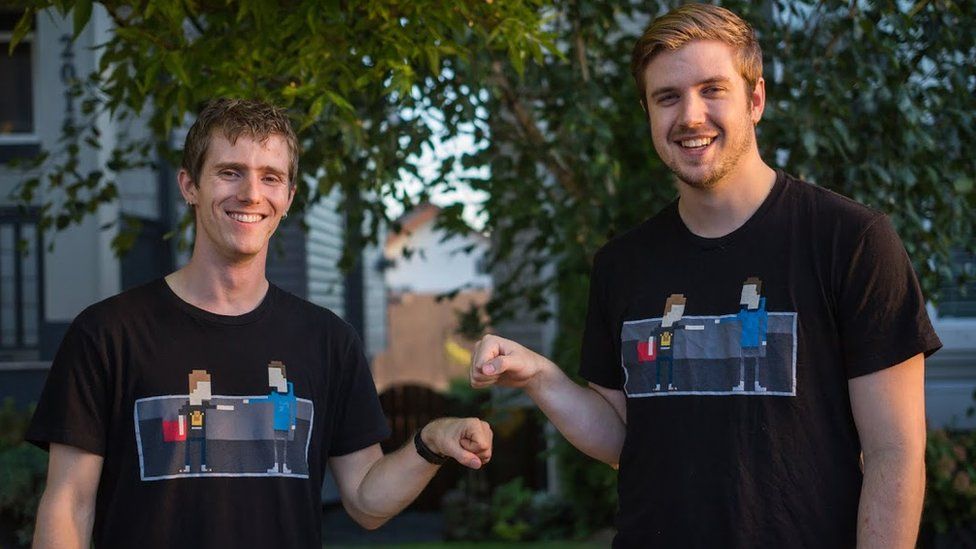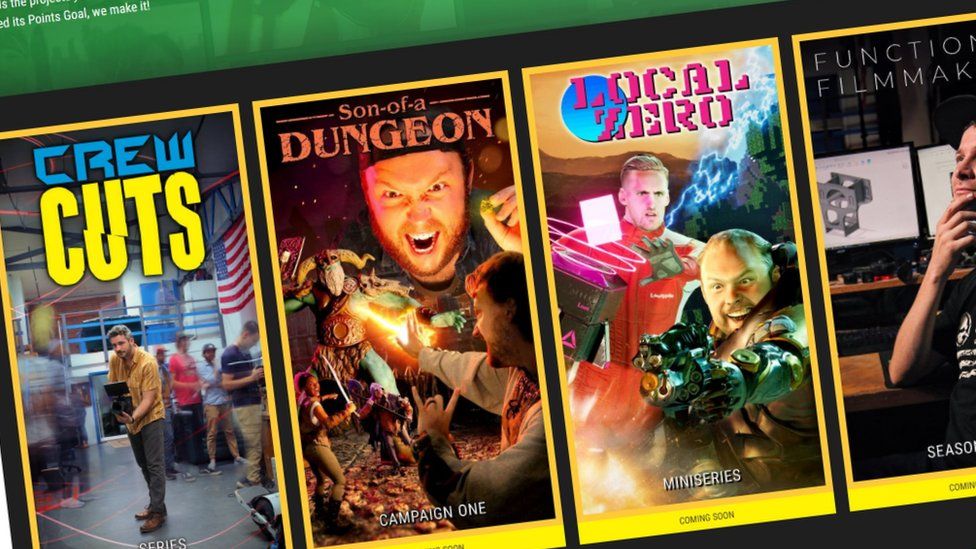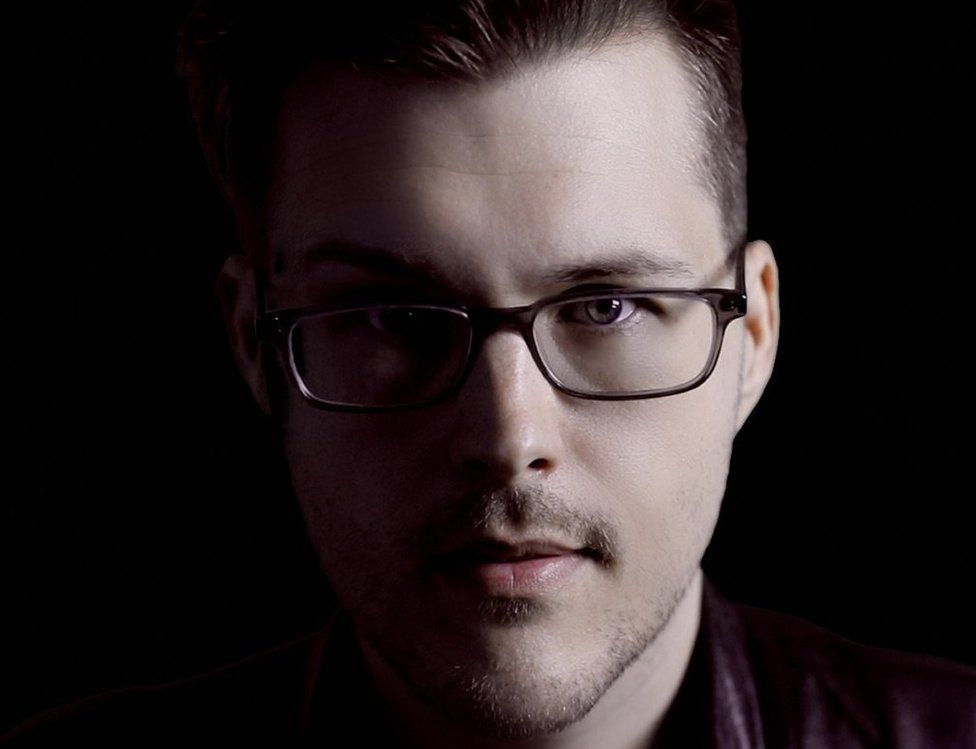나는 개인적으로 요즘 젊은이들의 Cyber World에 대한 이해를 하는게 무척 어렵고, 어쩌면 괴상한 꼴통 영감이 별소릴 다한다고 눈총을 받을지도 모른다. 나를 통해서 세상에 태어난 아이들과 대화를 하면 나는 거의 이해하는데 먹통이 된다. 내가 사용하는 Laptop computer를 얼마전에 새로 구입했는데, 내가사용하는 범위는 오히려 새로운 컴퓨터가 더 어렵고 이해도 안된다. 아이들에게 부탁을 하면, 설명도 없이 몇번의 Key board의 글자를 타치한후에 "아빠 여기 다됐다." 던져주다시피 주고는 그것으로 끝이다. 나는 아이들은 'Cyber Generation', 나는 '굴뚝'세대라고 분리한다.
요즘 한국에서는 You Tuber들의 활동이 무척 왕성한것 같아 보인다. 액스트라 수입을 얻기위한 목적도 있겠지만, 주요 언론에서 취급못해주는, 국민들의 시선에서는 매우 중요한 뉴스를, You Tube를 통해서, 필요한 정보를 얻기 때문인것같다. 다른말로 표현하면 좌파 문재인정부의 통제가 너무도 심하기 때문이다. 며칠전 트럼프 대통령의 Twitter 구좌를 폐쇄했다는 뉴스를 봤었는데, 그제재는 정부가 한게 아니고, Twitter Owner가 결정해서 내린 조치였던 것으로 알고있다 가장 구독자가 많은 You Tube운영자는 '신의한수'로 알고 있다. 그들에게는 반가운 소식일수도 있겠다.
You Tube를 이용해서 수많은 Computer Gaming을 즐겼던 You Tuber들이, 자기들만의 세계에서 맘먹은데로 그들만의 세계를 만들고 싶어서, 나쁘게 얘기하면 You Tube에 맞서, 젊은이들이 또 다른 가상세계에서 맘껏 그들의 뜻을 펼쳐볼수 있도록 "Floatplane"을 개발해서 Lauching했다는 장문의 기사를 BBC가 특종으로 보도한 내용을 읽었다.
자세한 내용은 읽어도 이해를 못하겠기에, 한마디 또는 짧은 문장으로 표현하다면, 천문학적으로 매우 비싼 컴퓨터 게임 하드웨어를, 아니면 아주 값싸고 조잡한 PC 하드웨어를 개발, 자랑하던 말던, Linus Sebastian의 비디오게임은 항상 뇌관을 튕기는, 그러면서도 YouTube에서 가장 유명세를 타고있는 젊은이들중의 하나로, 그를 You Tube에서 알려져왔다.
그와 동료들은 " Floatplane"라는 그들만의 싸이트를 만들어 데뷰 시키고 있는데, 아직까지는 매우 적은 숫자의 사람들로 부터 대단한 관심을 끌고 있다.
"Google은 그동안 나에게 너무도 좋은 친구였었다. 그러나 그것은 하나의 바구니에 담겨져 있는 수많은 달걀들의 집합체었었다".
현재 20명 조금 넘는 스탶들만으로는, '자애로운 과중한일'이라고 그가 명명한 작업을 하기위해, 현재의 회사규모로는 운영하기는 어렵다고 실토하고 있다. 그래서 대체 방법을 찾고 있는 것인데, 그러한 생각을 하고 있는 또 다른 You Tubers도 많이 있다는 것이다.
내가 알기로는 Google이 주인인 You Tube이용에서 때로는 간섭을 받는 경우도 있다고 들었는데, 앞으로 Linus Sebastian의 싸이트가 성장하면, 선택할 여유가 있어, 숨쉬기가 무척 쉬워질것 같다는 생각을 해 볼수 있을것 같다는 생각이다.
최근에는 Nebula 비데오 제작자, Lindsay Ellis가 젊은이들의 문화광장에 성전환의 혐오성에 대한 내용의 비디오를 만들었는데, YouTube의 자동검색 시스템에 실수로 적발되는 일도 있었다.
Jordan이 추측한바에 따르면 Nebula가 YouTube에 비디오 광고를 집어넣은, Google AdSense에서 벌어들인 수입과 거의 동등한 액수의 수입을 올렸는데, 방문자의 숫자가 거의 비슷했다는 뜻으로 이해된다.
그래도 나같은 굴뚝 세대에게는 아무런 영향이 없을 것이기에 큰 관심거리가 되지는 않겠지만..... 젊은이들의 성공을 빈다.
Whether he's showing off astronomically expensive computer gaming hardware or dumpster-diving for the cheapest PC builds possible, Linus Sebastian's videos always strike a chord, and have made him one of the most popular tech personalities on YouTube.
But Google-owned YouTube gets most episodes of Linus Tech Tips a week late.
Now, they debut on his own site called Floatplane, which attracts a much smaller crowd.
"Google has been very, very good to me," Linus says. "But it's a lot of eggs in one basket."
And with a staff of two dozen, he cannot rely on the company to continue being what he calls his "benevolent overlord".
He is not the only YouTube star looking for alternatives.
For a long time there have been tensions between those creating content on YouTube and the company providing the platform, ranging from disputes about ad revenue, to copyright problems, and even rows about the way videos are recommended to people,
Many successful YouTubers are now sizeable companies in their own right, and are seeking to safeguard their futures.
For the fans
For the last few years, Linus and co-worker Luke Lafreniere have been investing in their own platform called Floatplane.
The pair stress that it is not - and never will be - a YouTube competitor.
But they hope to provide a platform for existing video creators with a loyal audience, who might be willing to pay a few dollars a month to directly support the video-makers they love.
"It's only going to be your really hardcore fans", Luke explains. "There is no algorithm, they're going to be served everything you make."
Mostly focused on technology video-makers for now, the platform is not open to everyone.
The duo say it is growing slowly, and they are putting any profit back into building the site.
Creating an enthusiastic, tight-knit community around a topic has its advantages, says Luke.
On Floatplane "a lot of the toxicity that exists on public platforms such as Twitter and YouTube, in the comments, just does not exist", he explains.
A crew of your own
Nurturing a community is part of why LA-based visual effects studio Corridor Digital built its own fan-powered site.
Its founders Sam Gorski and Niko Pueringer are film-makers - but started publishing on YouTube a decade ago while they toured the LA "circuit" to get film projects made.
Today, their multi-person studio is hugely popular on YouTube for its videos that break down the best (and worst) Hollywood visual effects and stunts, and show their audience how they make their own short films.
The company also produces its own digital-effects clips, including one that asked what might happen if Boston Dynamics' bipedal robots fought back.
"YouTube has been our path. And it's been a great path," says Christian Fergerstrom, one of the studio's producers.
But he said success eventually led the company to ask: "What is stopping us from doing this ourselves?"
On the Corridor Digital site, fans earn "producer points" with their monthly $4 (£2.80) subscription, which they can put towards "funding" videos they would like to see made.
The audience can decide whether to back an instructional course on how to make videos, or lend support to a visual effects-laden Dungeons and Dragons campaign instead.
"We're also only presenting the stuff that we're really interested in and passionate about making," Christian says.
"The producer points you get on the website is a math equation for us, of how to make the shows with the budget that we can work with."
But in terms of income, the site is "definitely not at that level of what we're getting on YouTube," he adds.
That is partly because of how lucrative brand sponsorships are - and big brands prefer big YouTube audiences.
Corridor Digital's platform is designed for a much smaller audience of loyal fans, run alongside its YouTube channel.
The company sees it as a sort of insurance policy.
"In the back of our heads, we've always said... one day, YouTube could be gone. And it's not under our control," Christian explains.
The smart YouTuber mafia
One of the most successful rival platforms, Nebula, was built on a simple premise: giving creators independence from YouTube's algorithms.
"Starting a business on YouTube is like opening a brand new store in a shopping centre," founder Dave Wiskus explains.
"Except you might come in to open your shop one day, and the shopping centre has just moved you to the other end where there are no customers, there's no foot traffic. And you'll never know why."
On Nebula, subscribers get access to everything for $5 (£3.60) a month.
The company says it has 200,000 paying subscribers.
There are no content-recommendation algorithms, and video-makers are not penalised if they do not publish the "right kind" of content.
One of Nebula's creators, Jordan Harrod, describes herself as a "part-time YouTuber, full-time PhD student" at the Harvard MIT Health Sciences and Technology faculty.
She makes videos about artificial intelligence, AI ethics, and medical tech - not always the "right kind" of content for YouTube.
"There are definitely topics that I've come across that I think would be challenging to cover on YouTube," she explains.
As an example, she suggests a video exploring how algorithms moderate hate speech online. Ironically, YouTube's algorithms might flag the content as hate speech, she suggests.
And once a video has been restricted, it is unlikely to ever recover the "lost" views.
Something similar recently happened to Nebula video-maker Lindsay Ellis, who made a video about transphobia in popular culture. It was "mistakenly flagged" by YouTube's automatic systems.
Jordan estimates her subscription income from Nebula is "roughly the same" as what she gets from Google's AdSense programme, which places video ads before and during videos on YouTube.
Nebula has other benefits, such as help with production from its studio team.
But Jordan admits YouTube brand sponsorships are where the most money is made, by a long way - even if, as an academic, video-making isn't her "day job".
Once famously derided as an elitist "smart YouTuber mafia" by one critic, Nebula has adopted that term with pride. Dave Wiskus displays it on his Twitter profile.
"If we were to just open up the floodgates and let anybody sign up for an account and start publishing videos, we lose the flavour of the service," he says.
And on top of that: "YouTube has a whole bunch of problems we never want to have."






No comments:
Post a Comment